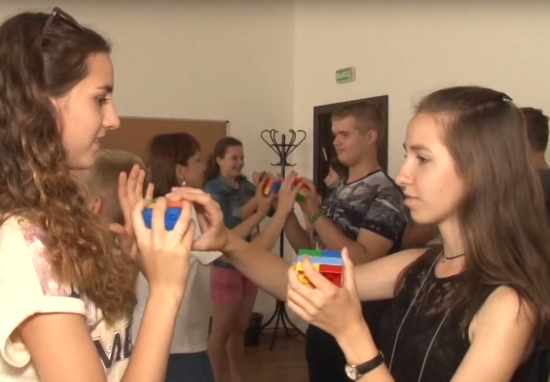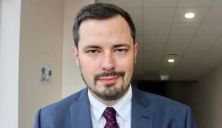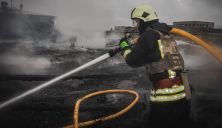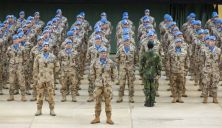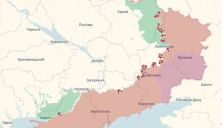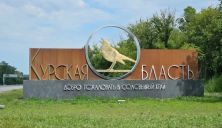Dozens of locations, thousands of teachers, workshops and lectures for students from eastern Ukraine. “EdCamp” is inspiring and educating those who have been affected by the war in Donbas.
For example, at one EdCamp in the city of Kharkiv, children had a lesson about recycling. There, Artem Stakhov, from the Luhansk region, said that he appreciated the class.
“It’s a very important thing in our society. I’ve learned a lot of interesting things which they don’t teach us at school,” Stakhov said.
Another student, Daryna Losytska came to camp from a village in the Donetsk region. She said that the war forced her family to leave Maryinka, their native town. Losytska said the war has changed the way teachers treat students.
“They started approaching everyone individually. There were children who were coming to our school from Maryinka, and they were treated with respect. What was important, was that they went to school and they were fine. There could be no power in Maryinka – so they couldn’t do their homework. But it wasn’t a problem, everyone understood the situation,” Losytska said.
According to one of the teachers, Yuliya Kuzmenko, a teacher must, before all, be a friend and a psychologist. That way, it is easier to find a common language with the children.
“We’re all in the same situation, we understand each other. We try to find touch-points, so the format of our work has changed a little,” Kuzmenko said.
Classes in conflict areas often have to be suspended due to attacks by Russian-led militants. According to the United Nations Children’s Fund, more than 740 schools in eastern Ukraine have been damaged or destroyed.
“We repair schools with our foreign partners, and then they are shelled again. And it’s a huge problem. We are forced to build a network of schools so that they would be outside the zone where buildings could be destroyed and children could be hurt,” Ukrainian Minister of Education and Science Liliya Hrynevych said.
Ukraine joined the EdCamp international initiative in 2015.

